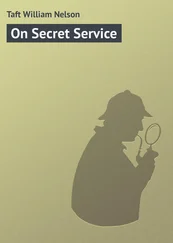That the Secret Service’s computer program for listing transfer preferences and bidding on promotions is an antiquated DOS-based program symbolizes how much the Secret Service cares about agents’ wishes.
Resignations before retirement have increased substantially in recent years. In all, the Secret Service has 3,404 special agents. More than half their man-hours are devoted to protection of the president and other national leaders, as well as visiting foreign dignitaries. Attrition rates are increasing. As the trend accelerated, the Secret Service declined to provide full yearly figures, but the rate is roughly 5 percent a year. Turnover rates are as high as 12 percent a year in the Uniformed Division, which has 1,288 officers. More alarming, agents who have been in the service ten years say a third to half of the agents who were in their initial training class have left.
“These people who are leaving are very qualified agents who are doing a really good job and are held in high esteem,” an agent says. “That’s what really hurts us.”
The Secret Service asked an analyst then based in Washington to study the problem of retention and the costs associated with agent turnover. She found it was an increasingly serious problem. The incremental cost to the government of training a new agent is eighty thousand dollars for the agent’s salary and the cost of equipment and travel. That excludes the fixed costs of the training facilities and the salaries of instructors.
“The higher-ups basically dismissed her findings, saying, ‘Oh, we don’t have any kind of retention problem,’” says a current agent. “They didn’t want to hear it.”
Johnson, who is now a real estate investor, describes trying to raise the issue during her exit interview.
“The supervisor who was giving me the exit interview was literally saying, ‘Tell me if there are any problems we should know about’ as he was starting to escort me out the door,” Johnson says. “I said, ‘Well, yes, I’m sure you hear this a lot,’ and I began to lay out examples of unnecessary burdens imposed on agents.”
The supervisor became defensive.
“He started going on about how the military does more, and there are civilians who sacrifice more than we do in the service,” she says. “He couldn’t even listen to what I had to say.”
In a rare move, an agent raised the issue at a meeting of Secret Service officials at the agency’s Washington field office.
“You’ve got a bunch of Generation X agents,” he said. “We’re concerned about our families; we’re concerned about our wives and our kids. Something has to change.”
Shortly after that, the agent resigned.
In recent years, agents say a dismissive, insular culture and a disregard for the need to retain agents have remained constant.
“Our leadership is in absolute denial that there’s a problem,” an agent says. “They don’t want to do anything to fix it.”
Agents say the Secret Service promotes those who have a similar mind-set and that agency directors stay for two or three years, then leave without changing the culture. As one example of poor management practices, they cite a statement made by a special agent in charge of the vice president’s protective detail. The supervisor said that no agents on the detail would ever be promoted because of the number of agents who are seeking promotions.
“The best you can hope for is to get to an office you can make the most of, because the next move will probably be your last,” the official told his own agents.
“Needless to say, morale went from low to rock bottom with that,” says an agent who was at the meeting. “Several agents left saying they were done, time to move on.”
Johnson says she accepts that by its very nature, a Secret Service agent’s job is demanding. While she was assigned to protect former president Clinton, he was constantly traveling all over the world. She could hardly ever plan anything in her personal life, because her schedule was his schedule.
What Johnson and others resented was that the Secret Service ignored simple opportunities to lessen the necessary burdens of the job. For example, the Secret Service lets agents know their schedules for the coming week late Friday afternoon, just before the weekend starts. As a result, agents are prevented from planning social and family events.
On trips, agents are expected to work virtually around the clock. In the past several years, the Secret Service imposed limits on overtime pay, offering compensatory time instead. But the agency often denies agents the opportunity to use compensatory or flextime they have earned in lieu of overtime pay. When flextime is taken, it usually must be taken within a week. If an agent has other duties already scheduled, the agent may be forced to forfeit the flextime. After seven years, an agent based in a major city might make upward of $110,000 a year without overtime.
“When you’re doing foreign advances, you’re working eighteen-and twenty-hour days, seven days a week, yet the schedule says you are working nine to five,” says an agent.
What this means is that the Secret Service pays overtime for weekends worked but not for additional hours during the week. In another twist, the agency, as a matter of practice delays paying out overtime earned for two or three years. In the fall of 2008, supervisors on the president’s protective detail even began refusing to record agents’ overtime pay. When agents began complaining to the financial management division, they were told by supervisors not to make further inquiries.
Paid or not, agents end up working eighteen-hour days.
“How tired do you get? Just imagine sleeping three or four hours a night for a week,” says an agent.
“Pilots have mandatory rest periods,” says a former agent. “But you’ve got a guy standing next to the president with a loaded gun who hasn’t had sleep in three days and has traveled through four different time zones.”
One night, the agent and his wife had an argument.
“You have no right to discipline your children, because you’re not their father,” his wife said to him. “You don’t act like their father; you’re never around.”
She was right, the former agent says.
“I was never around,” he says. “I was missing everything. I was missing Christmas, I was missing Thanksgiving.”
The agent quit.
The agency’s rigidity extends to administrative personnel. An investigative assistant who was a crackerjack at her job of providing agents with the data they needed asked for a schedule change. She wanted to come to work a half hour earlier than her current schedule called for and leave a half hour earlier so she could pick up her child at day care.
The Secret Service refused, so she left for the Department of Housing and Urban Development. There, she got the schedule she wanted. She even got to work at home on Fridays.
After being a Secret Service agent for almost ten years, Johnson finally quit. She says the agency is mostly run by agents who are “old-school” and think everyone wants to join the Secret Service at any cost.
“In the old days, the Secret Service was a great gig,” Johnson says. “People lined up to join. They had applications on the shelves for years. People would drop everything at the drop of a hat to get a Secret Service job. It was great pay and offered stability. Well, times have changed, but their mentality hasn’t. People can go out and make a lot more money in the private sector, a lot more money on their own, for much less risk. Management’s attitude is almost as though we should literally be thanking them every day we wake up and have a job.”
The Secret Service has trouble finding qualified applicants to replace those who are driven away.
Читать дальше












